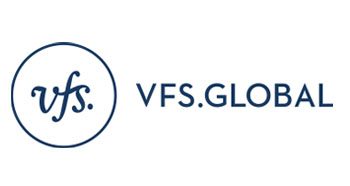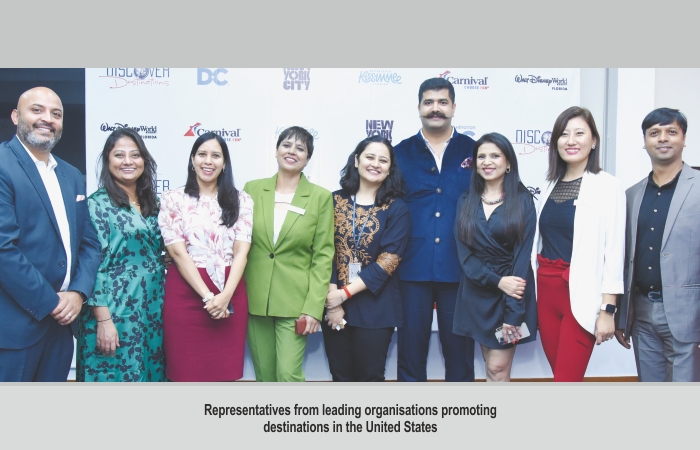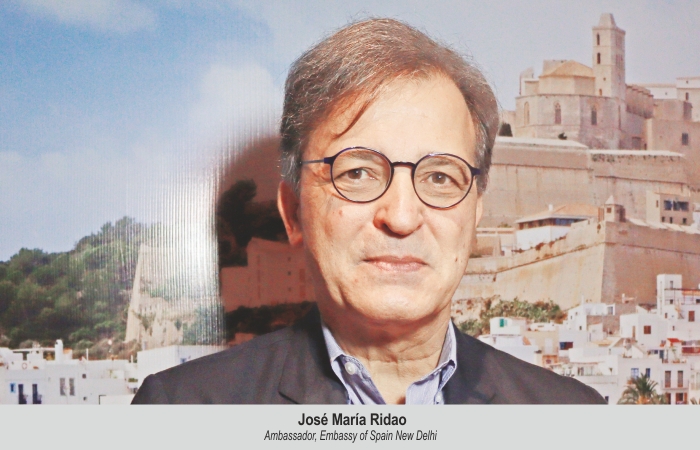
 Even though the Covid-19 pandemic has affected the expected growth in the tourism and travel industry, one cannot deny the indispensable role travel still plays in our lives and in the economy of many countries. Travel will bounce back as borders start opening up again, but the way one travels henceforth is set to differ from any of the earlier changes we experienced, feels Vinay Malhotra, Regional Group COO – South Asia, Middle East & North Africa, Americas, VFS Global.
Even though the Covid-19 pandemic has affected the expected growth in the tourism and travel industry, one cannot deny the indispensable role travel still plays in our lives and in the economy of many countries. Travel will bounce back as borders start opening up again, but the way one travels henceforth is set to differ from any of the earlier changes we experienced, feels Vinay Malhotra, Regional Group COO – South Asia, Middle East & North Africa, Americas, VFS Global.
The world is looking at a recovery roadmap and simultaneously implementing key efforts. We are exploring ways to go back to our daily routines, albeit with changes from a health perspective that are imperative for our safety.
Just like we are doing today, we could well also be altering our usual travel behavior to make the next journey safer for ourselves and those around us. To keep up with this evolving traveller behavior, it is important for the travel industry to transform along with its customers, and build a travel ecosystem that is more sustainable and one they feel safe in. Here’s what we could well see change:
Smart travel- the best new way to travel
The fear of the coronavirus has embedded an added layer of caution around human touch, and people across platforms are doing their best to minimize the amount of human interface. The safest and most utilized alternative currently is the digitisation of systems and processes. By taking travel planning online, we enable remote applications and processing from home, avoiding crowded public spaces, and cut down on human touch-points and process turnaround timelines significantly. With varied digital solutions such as eVisas and ePassport gates, essential travel documents can be processed digitally in a smooth transition. Upgrading technology at every juncture of travel will now be imperative, to make it an overall safe and ‘smart’ experience
Customized experiences and services
Physical distancing has formed the basis of our new normal. Hence, consumers are likely to have a higher preference for services that are tailored to their needs. Be it ordering food, booking a vacation, or applying for a visa, consumers will be looking for services that not only enhance their experience but also make it more convenient and hassle-free. Custom-made could become a necessity instead of a luxury. Doorstep delivery services, courier services for return of documents, and Premium Lounge access for less crowded and more personal application submission, etc. will surely gain more acceptance in the new normal.
Travel and medical history
Travel and medical history may become additional documentation by various service providers in the travel ecosystem, to help verify if there is a health risk, beyond just the security risk to the destination country. Pre-existing conditions, comorbidities, etc. might become vital parameters for clearing the eligibility criteria to opt for numerous facilities in the travel sector.
Travel essentials will see a shift
One of the most prominent changes will be the way we pack for our next trip, health and hygiene products will be on top of our packing checklist. Travellers are sure to add sanitizers, masks, gloves, etc. as essentials in their next travel plan. In addition, personal items that could be easily bought or asked for on a flight will now be a part of our travel handbags as people refrain from sharing items. Immunity passports/ test or risk-free certificates may also be a requirement to enter some countries and become essential in our travel packs along with our standard travel documents.
AR and VR redefining planning process
Securing the trust of the consumer is now a priority for both destinations and travel companies. In the post-Covid-19 world, consumers are bound to look at options that give them a better understanding of destinations or products in order to make well-informed decisions while planning. Hence, technologies such as augmented reality (AR) and virtual reality (VR) could gain rapid acceptance and play a significant role in the travel inspiration and planning process. It will help reassure the traveller of the surroundings they choose and necessary safety precautions keeping them at ease.
Bearing in mind the unstable nature of the situation we are in, there is still a lack of visibility for the industry to manoeuvre in the new normal. However, it is also true that the next steps in our world are sure to be analyzed thoroughly from a health perspective making the world a safer place. Sustainable change is inevitable and how we embrace the changes to come will set the tone for the status of the industry in the near future.
The author is the Regional Group COO- South Asia, Middle East & North Africa, Americas, VFS Global. Views expressed are the author’s own. The publication may or may not subscribe to the same.
 TravTalk India Online Magazine
TravTalk India Online Magazine






